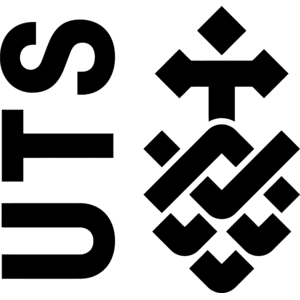Develop expertise in digital marketing and business management with a specialised online MBA.

Become a business manager with advanced marketing skills. With an online MBA in Digital Marketing, you will learn how to direct strategic digital campaigns. This course builds expertise in using data and online platforms to maximise profits.
An MBA (Digital Marketing) examines the role of technology in driving success. It delves into new and emerging digital platforms, big data, and online consumer behaviour, among other topics. Each subject, whether in marketing management or more general business areas, is useful for leaders today.
Course Overview
The online MBA in Digital Marketing offers a mix of 12 subjects: 8 core and 4 electives. Core topics include data-driven decision-making and marketing in the age of technology, while electives cover digital consumer behaviour and emerging technologies.
The flexible, part-time program, which can be completed over 24 months while employed full-time, is ideal for busy professionals. Gain skills in designing campaign strategies, analysing market data, and using key digital platforms. This course prepares you for a competitive career in the digital age.
Why an MBA in Digital Marketing Is Worth It

This Master of Business Administration program is a solid investment, offering expanded career opportunities and a competitive edge. The specialised digital marketing MBA is designed to pave the way to executive roles.
Whether you're a general manager or marketing manager, or want to move in either one of those directions, an MBA with a Marketing major is an excellent education investment. Marketing, especially digital marketing, drives the fortunes of businesses and organisations across Australia. This MBA is a bedrock for career progression in general management and specialist executive roles.
The degree not only improves your job prospects but can also contribute to higher salaries. Specialising in Marketing during your MBA journey elevates the degree's potential payoff. Executive marketing roles tend to be high paying, but so are generalist managerial positions where knowledge of technology and marketing is advantageous. This combination of benefits makes the MBA a valuable addition to your professional credentials.
UTS Online - MBA (Digital Marketing)
The UTS Online MBA develops strategic leadership skills and analytical capabilities to make evidence-based decisions. The Digital Marketing specialisation is ideal for both experienced marketers and managers from a non-marketing background. You'll benefit from a blend of instruction in business subjects, management principles, and modern marketing approaches. The accelerated online program consists of 8 core subjects and 4 electives, with 6 digital marketing subjects to choose from. Topics include digital consumer behaviour, data-driven marketing, and emerging technologies. You can study for this online MBA part-time while working full-time.
What You Can Do After the MBA

Earning an MBA in Digital Marketing distinguishes you as a forward-thinking leader. This degree's value is apparent in decision-making roles, where familiarity with digital campaign strategies can drive business growth.
Executives who effectively integrate marketing and business planning often deliver exceptional results for their companies. Typically, successful firms have leadership that recognises the importance of marketing and is willing to invest in it.
In today's technology-driven environment, business administration skills combined with contemporary marketing knowledge form a potent pair. This MBA benefits a range of professionals, from marketing managers and CMOs to general managers and company directors, who can capitalise on the innovation opportunities it presents.
Executive marketing jobs
- Account Executive
- Advertising Manager
- Brand Manager
- Digital Media Director
- Director of Marketing
- Product Marketing Manager
- Public Relations Executive
Business management roles
- Business Consultant
- Business Development Manager
- Chief Executive Officer
- Entrepreneur
- General Manager
- Product Manager
- Program Manager
Salary Potential
A Marketing MBA prepares you for senior roles in directing sales and other business activities, beyond being a professional marketer. It is highly advantageous for advancing to executive positions.
Indicatively, graduates with substantial professional accomplishments can expect salaries upwards of $98k. Recent statistics reveal that marketing managers receive an average annual salary of $104,431, business development managers earn $98,619, and product managers earn $124,130. These executive positions often prioritise candidates with an MBA degree as a preferred qualification.
High salary potential also exists in less common roles such as chief marketing officer (CMO) and marketing strategy consultant. Employers value the specialised knowledge, strategic thinking, and expertise in cross-team collaboration that business administration graduates bring to the table.
What You'll Study (Course Structure)
In Australia, a Master of Business Administration online is typically a 12-subject degree. Your MBA curriculum will consist of compulsory core courses, electives and possibly a capstone course at the end. To qualify for your preferred specialisation, you need to choose electives from that study stream.
The MBA (Digital Marketing) from UTS Online is made up of 8 core subjects* and 4 electives. The part-time program is rich in marketing subjects, with 6 electives to choose from. As well, 'Marketing in the Age of Technology' is one of the core courses every candidate is required to complete.
Digital marketing electives
Adopt a powerful, scientific approach to marketing by exploiting abundant data on consumers. Using data analytics, you can discern consumer behaviour, actions, and responses to promotional activities. In this subject, you'll learn how achieve data-driven decision-making. Students examine methods to analyse consumer and market data, with the goal of shaping strategies and measuring campaign performance.
To create the best marketing strategies to achieve business outcomes, you need to understand the psychology and decision-making processes of digital consumers. This subject explores how technology shapes consumer behaviour, accounting for factors such as individual preferences, and social and cultural context.
With the virtual space constantly evolving, we see changes to technology, marketplaces, consumers, and competitors. New platforms and markets create both opportunities and challenges for marketers. In this subject, students explore important digital platforms, how customers interact with them, and how marketing professionals can use the platforms to achieve business goals.
For almost any business problem or opportunity, new or emerging technologies are available to provide efficient solutions. In this subject, you'll explore how technology is being used in marketing; for example, how we can leverage technology to enhance brand experiences or realise strategic business initiatives.
This subject explores the concepts, processes and philosophies around managing a new offering, with a focus on virtual products and services and the use of digital platforms. You'll examine a research-based approach to new offering management that yields robust, practical methods.
Omnichannel marketing strategy is about integrating digital and other marketing touchpoints and channels to create a smooth experience for customers over their shopping journey. You'll develop a strong understanding of the topic by exploring channel integration in organisations and coming up with solutions to improve the shopper's experience.
* Core subjects are: Accounting for Decision Makers, Data-Driven Decision-Making, Financial Fundamentals, Governance and Sustainability, Leading People and Change, Managerial Economics, Marketing in the Age of Technology, Strategy and Negotiation.
Learning Outcomes

The learning outcomes from a marketing MBA include competencies you'd expect to build from any MBA program, such as the ability to: articulate leadership principles and strategies, strategically approach issues of conflict or dispute, read and interpret financial statements, and capture opportunities to use business analytics.
In terms of the digital marketing skills you acquire, learning outcomes may include the ability to:
- Design and apply campaign strategies to deliver organisational value
- Analyse consumer and market data to design strategies that achieve business outcomes
- Use performance data to evaluate and optimise strategies and campaigns
- Explain how key platforms can be used for marketing and brand management
- Develop strategies for integrated communications and a seamless customer experience.
Entry Requirements
Entry requirements for a marketing MBA are generally the same as for any Master of Business Administration. You don't need a marketing background to qualify for course admission.
In Australia, you can gain entry to most business schools with a bachelor degree (or postgraduate qualification) and professional work experience. Additional pathways may exist for applicants with insufficient academic achievement or job experience.
Course fees are $4,250 per subject in 2023. FEE-HELP is available for Australian citizens.
Applicants to the UTS AACSB-accredited Business School can be admitted through any one of three pathways.
(A) Bachelor degree
Any undergraduate bachelor's degree plus one of the following:
- GPA of 5.25+ on a 7-point scale, or equivalent, and a 90% pass rate
- Four full years worth of relevant work experience
- Graduate Management Admission Test (GMAT) score of 550+ with at least verbal 25, quantitative 35 and AWA 4.0.
(B) Equivalent or higher qualification
- A qualification from a recognised university such as a graduate certificate, graduate diploma, or master’s degree, with satisfactory completion (defined as more than 75% of all subjects at pass level).
(C) Graduate certificate pathway
- Successful completion of the UTS Online Graduate Certificate in Business Administration, with academic credits fully carrying forward in the master's.
Further entry avenues exist for this course compared to the MBA, including: (a) satisfactory completion of a bachelor degree and 2 years of postgraduate work experience OR (b) Graduate Record Examination (GRE General Test) score of 307+ with at least verbal 148 and quantitative 156 OR (c) at least four years of full-time (or equivalent) relevant work experience and a general capacity to complete tertiary education.
FAQs
An MBA with a Marketing specialisation is a versatile degree with a high potential payoff.
Even without the major, you're already gaining the world's most recognised management qualification: a Master of Business Administration degree. As an MBA graduate, you have the business education to rise to senior management roles in any industry.
Specialising in Marketing as part of your MBA studies further qualifies you for executive roles. If you start the program without a background in the field, the degree may create new opportunities. Courses are typically developed by academic and industry experts.
There isn't really a downside to choosing the major. We'd only say that, if you want to maximise your technical marketing skills at an early stage of your career, a Masters in Digital Marketing or other specialist course may be more appropriate.
You can use an MBA with a marketing major in at least three different ways.
- If you're new to being a marketer, you can use the skills and qualification to pivot into the industry. You'll probably have to start with entry-level roles and do further training, but you have a masters that removes any barriers to how far you could go.
- If you're already a marketing professional, the degree may help you be promoted to senior roles. Holding an MBA is a signal of ambition and competency for management and leadership jobs.
- Anyone can, sooner or later, use the degree to compete for general management positions. An MBA is a general management qualification. The specialisation is also relevant to senior managerial jobs since marketing is essential to drive business growth.
Yes, digital marketing is a great career choice. As communication technologies dominate, demand for skilled marketers is on the rise. Businesses now allocate over half their marketing budgets to digital, driving job growth and rewarding salaries.
The field blends technical know-how with creativity. Skills like SEO, content marketing, and social media are invaluable for today's businesses. Plus, there's ample room for specialisation and career advancement.
Despite a steep learning curve, the payoffs are considerable. Creative freedom, measurable impacts, opportunities for growth, and the benefits of remote work make it an appealing path. You'll be at the heart of the technology future.
A typical MBA program consists of 12 subjects, which equates to 3 semesters or 1.5 years of full-time study at a campus (or 3 years part-time).
For accelerated MBA courses, however, you're looking at 2 years of part-time study online. This is easily combined with full-time work.
- The general pattern is that you complete a subject every couple of months.
- Each two-month block essentially consists of a 6-7 week teaching period and a short break before you move on to the next subject.
- As a guide, you should allocate roughly 10 hours to study each week as a part-time student.
- Fast track your degree by studying throughout the year to complete six subjects annually.
You may find mini MBAs with specialisations such as brand management or marketing. Mini MBA programs are essentially non-accredited (informal) business short courses. "Mini MBA" is advertising language to help promote online marketing courses. It is not a Master of Business Administration degree but a short course that sits outside the university system and formal higher education.

